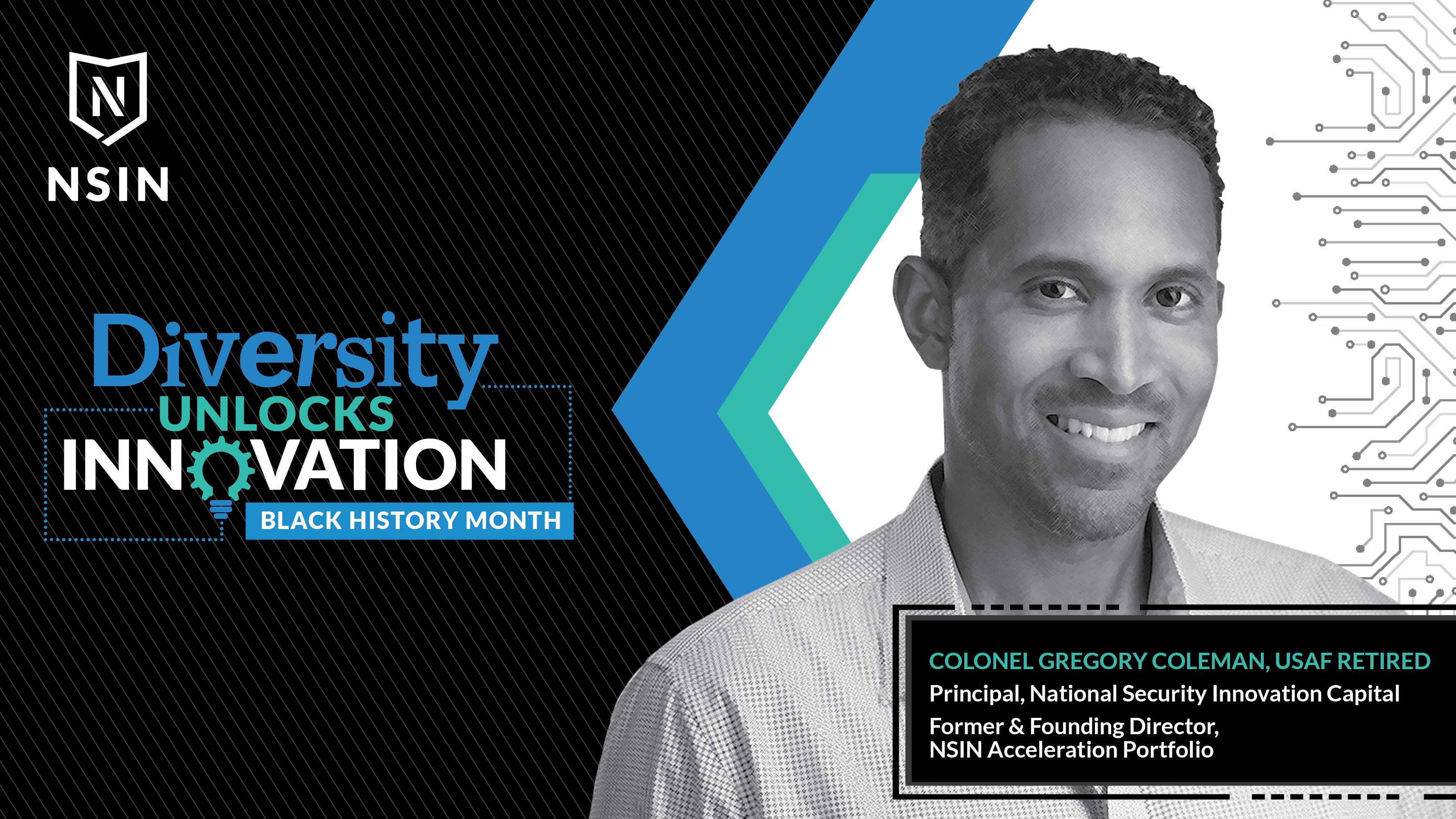
Colonel Gregory Coleman, USAF Retired - Emerging Leader


NAME: Colonel Gregory Coleman, USAF Retired
NSIN AFFILIATION: Former & Founding Director, NSIN Acceleration Portfolio
AFFILIATION: Principal, National Security Innovation Capital
STATE: Maryland
Q: Who/what inspired you to get involved in an NSIN defense innovation program?
By the time NSIN was launched, I had already completed over 20 years of military service and nearly a decade as a tech entrepreneur. I always knew on a deep level that DoD needed to work more effectively with startups if we were going to keep technological pace with our competitors. In NSIN, I saw a way to bring my unique combination of military operations and startup founder experiences to bear on these important challenges and figured out how to work my way into the organization before there were really any set pathways in.
Q: What advice would you offer to others about pathways to national service and working with the Department of Defense?
I challenge you to put aside any preconceived notions about working in DoD because they are likely outdated or uniformed. Even after 25+ years of military service, I continue to be amazed by the caliber of people I meet and their diversity of backgrounds and experience. I came into NSIN and DIU thinking I was going to be one of the only people who understood what it was like to work in the commercial sector but was quickly surprised and humbled by the diversity and depth of experiences I encountered.
Q: In your experience, how has diversity, or the lack of diversity, affected a team's ability to generate creative ideas and solve problems?
Lack of diversity creates blind spots and impairs effective decision making. It is easy to get into groupthink and even easier to lose the empathy required to understand diverse points of views and perspectives. When you’re working on something that impacts a wide range of people, whether it is a product or a policy, insufficient perspective and consideration can lead to catastrophe or, at best, sub-optimal performance.
Q: If you could go to dinner with any Black historical figure, dead or alive, who would it be and why?
I would have dinner with General Benjamin O. Davis, Jr., the Tuskegee Airman and first African American USAF Brigadier General. I would love to talk to him about the private thoughts he had as he navigated the military in that time.
Q: Why is it important to learn about Black history and what does it mean to you?
I live Black history, was raised by Black history, and sometimes am Black history. My grandfather was a Tuskegee Airman, my father was the first Black man from the state of Tennessee to be appointed to the Naval Academy, and my wife’s grandfather was one of the contractors who rebuilt 16th Street Baptist Church after it was bombed in 1963. In my own life, when I was an Air Force pilot, only 2% of us were Black. As a tech entrepreneur, I was part of the first-ever all-Black founding team to attend a Techstars Accelerator and have raised venture capital in a world where only 2% of founders who have raised over $1M are Black. Knowing my history is what gives me the strength and resilience required to spend so much of my professional life as “the only” or “one of the 2%”. I stand on the shoulders of those who came before me and have a responsibility to continue the journey.